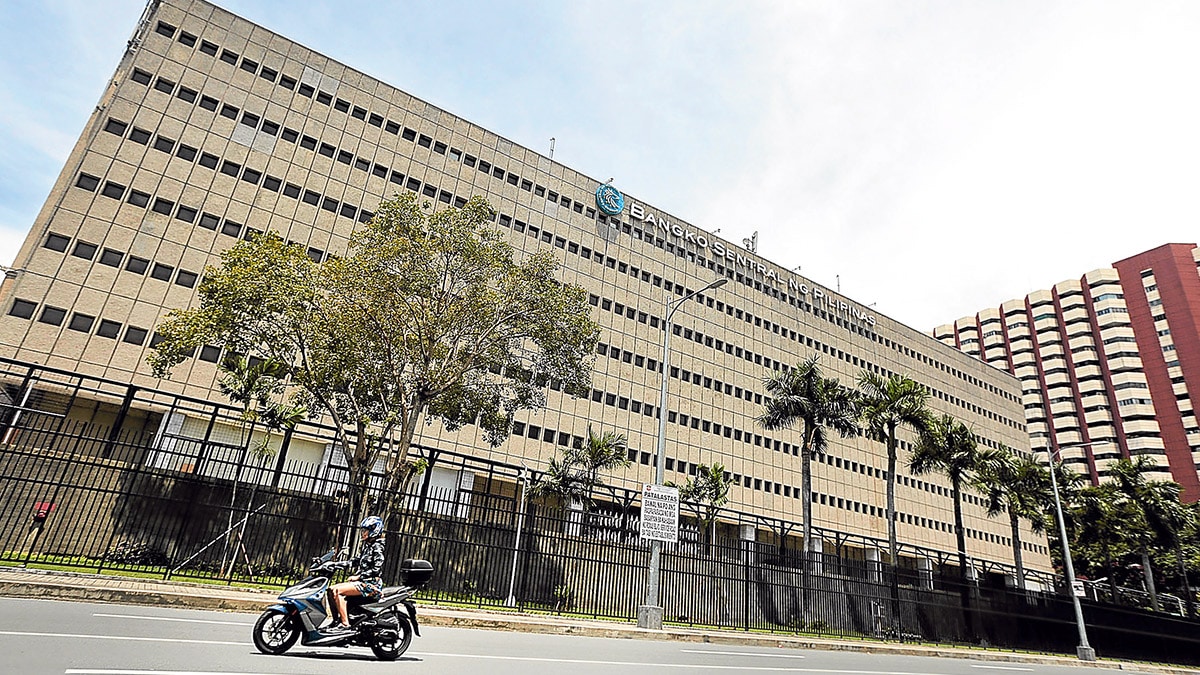New polymer banknotes coming in 2025

INQUIRER FILE PHOTO
MANILA, Philippines — The Bangko Sentral ng Pilipinas (BSP) will launch next year the first series of polymer banknotes that will include all denominations, more than two years after circulating the award-winning P1,000 bills produced using plastic materials.
The BSP said the new polymer banknotes were targeted to be released in the first quarter of 2025. The paper-based bills will cocirculate with the new banknotes.
The central bank hinted at the upcoming launch of “smarter, cleaner, stronger” peso bills in a social media post—which suggested that the design of P50, P100, P200, and P500 polymer banknotes might also feature animals that are endemic to the Philippines like the P1,000 bills.
The obverse side of the P1,000 polymer banknote showcases the Philippine eagle and the national flower, sampaguita. These two flora and fauna symbols replaced World War II heroes Josefa Llanes Escoda, Jose Abad Santos and Vicente Lim on the country’s highest denomination banknote, stirring up controversy at the time of its release.
The central bank said the new polymer notes would only feature endemic animals and plants.
“While the paper banknotes—which will remain in circulation — feature heroes, the polymer series will showcase the country’s rich biodiversity,” the BSP said.
“The new polymer banknotes shall be circulated alongside the existing paper banknotes. Paper banknotes shall remain legal tender,” it added.
Lower production costs
While paper banknotes are still widely used today in the country, the BSP in April 2022 began circulating polymer banknotes using plastic materials.
The shift to plastic-based raw materials was part of the central bank’s attempt to introduce more durable banknotes in response to the rapid deterioration of abaca-based peso bills, especially smaller denominations often used in wet markets. The polymer bills, the BSP said, can last at least two to five times longer than paper banknotes, offsetting high production costs.
Central banks around the world change the designs and materials of their banknotes every 10 years, on average, to prevent counterfeiting. The BSP said countries like Canada, Australia, New Zealand, Malaysia, Mexico, Fiji and Vietnam had experienced a great reduction in counterfeiting cases after shifting to polymer banknotes.
The decision to upgrade the features of peso bills is part of the BSP’s active efforts to keep local banknotes counterfeit-proof even as the country is shifting to digital payments.
This year, the BSP and Bundesdruckerei GmbH, a German federal technology company, agreed to collaborate on currency management and production in the Philippines.
Under the memorandum of understanding (MOU) signed with the BSP on Oct. 10, Bundesdruckerei will help the Philippines produce secure, durable and sustainable banknotes, as well as improve its digital payments infrastructure.
Headquartered in Berlin, Bundesdruckerei boasts of over 250 years of experience in printing banknotes on behalf of governments and central banks worldwide, including the euro currency since 2000.
The MOU is effective for five years. During that period, the BSP and Bundesdruckerei will work on research and development on digital payments and substrate, a special material used to produce banknotes. To do that, the two agreed on technology and staff exchange, as well as information sharing on legal aspects relevant to payments and currency management.
